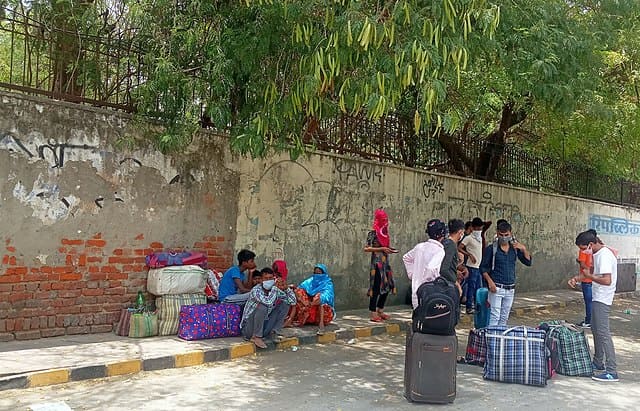
The pandemic has profoundly impacted the world. It has resulted in more than 22 crore cases and around 45 lakh deaths across the globe. Our country has also seen highly devastating sights and uncountable grievances of people. However, visuals from one such incident will keep haunting the national leaders for generations to come. The sight of workers walking back to their hometowns and carrying their children and belongings questioned the legitimacy of our country’s health and transportation framework. During the second wave, migrant workers had no hope left. With no money left, an upsurge in the unemployment rate, no access to healthcare and risks to life forced the migrant workers to take this drastic step of walking more than 1,000 kilometres to reach their hometowns. According to a report published by the Stranded Workers Action Network (SWAN), the most affected workforce was from the informal sector. While the effects were similar to the first wave, the second wave resulted in compounding problems for workers as they had no access to healthcare. SWAN recorded conversations with around 8,000 workers along with their family members. It observed the lack of access to primary healthcare, lower incomes and savings, increasing debts, and struggles to survive in an expensive metropolitan city. The report did not include the additional concerns of access to food and finding jobs in their hometowns. When asked about the impacts of lockdown and the pandemic, Rajesh, 32, a migrant worker from Bihar, said, “We had no hope left. I thought we would not survive, but I could not leave my children alone. We kept walking and finally reached here. I broke down when I met my mother, and since then, my family has refused to go back.” Bihar recorded close to 2.5 million workers coming back to their villages out of desperation and frustration. The media houses still failed to cover their grievances in detail. Manoj Jha, a Member of Parliament from Rashtriya Janata Dal party, while highlighting the problems of thepoor people, said in his parliamentary speech, “Deaths during the second wave remains a living documentary of the government’s failure.” The video went viral, and it further probed indi- viduals to think about the kind of things and gover- nance they have experienced in the last year. He further explained in his speech that nothing is free, and hence everyone contributes equally in this welfare state. The plights of the migrant workers have failed to gain the attention of the government and the media. With an impending third wave, the government has to plan carefully to avoid serious economic and health implications on migrant labourers.
10 Jan 2022
Abhishek Anand